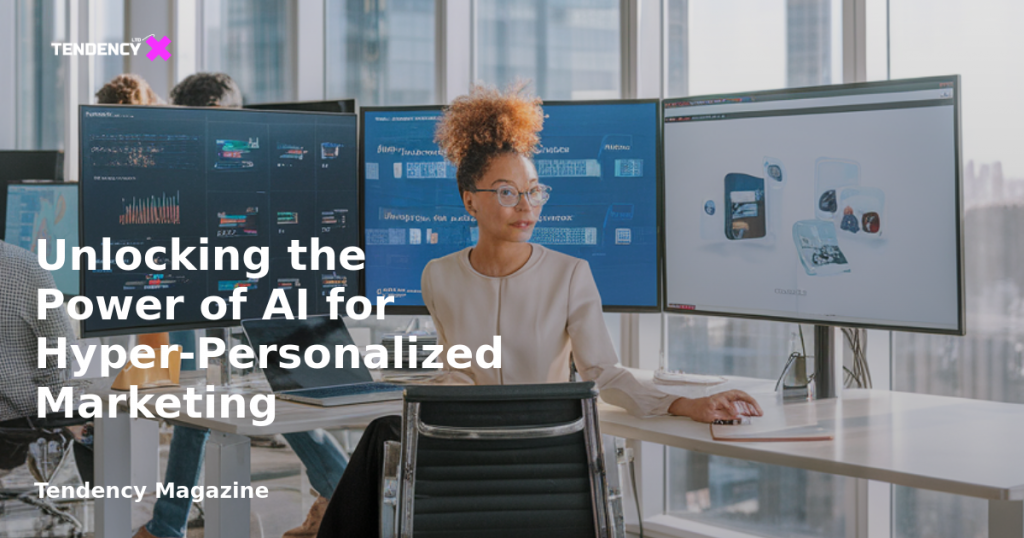Unlocking the Power of AI for Hyper-Personalized Marketing

Table of Contents
- What is AI Personalization Marketing?
- Applications of AI Personalization Tools
- Best Practices for AI Personalization Marketing
- AI Personalization Marketing FAQ
What is AI Personalization Marketing?
AI personalization marketing leverages AI technologies to analyze customer behavior and historical data, crafting tailored marketing experiences such as ads, emails, and subscriber content for individual customers. Unlike traditional customer segmentation, which groups consumers into broad categories, AI-powered personalization uses machine learning to analyze patterns across multiple data points, including:
- Browsing History: Tracks not only the categories users view but also the sequence, timing, and context of their interactions.
- Purchase Patterns: Identifies unique price sensitivities, brand preferences, and buying triggers for each user.
- Social Media Interactions: Understands specific interests based on the influencers a user follows and the content they engage with.
- Demographic Information: Uses age and location as a baseline, further refined by individual behavior.
With these insights, marketers can employ generative AI to create a truly individualized consumer experience.
Applications of AI Personalization Tools
Content Personalization
Content personalization involves using generative AI to tailor content specifically for individual consumers. By feeding datasets into large language models, marketers can customize digital ads, website experiences, email campaigns, and social media posts. For instance, Loftie, a wellness company, launched a digital product using AI that complements its signature alarm clock, enhancing customer engagement and broadening brand reach.
Personalized Pricing and Discount Offers
Dynamic pricing, powered by AI, optimizes pricing strategies in real-time by analyzing consumer buying patterns, competitor pricing, and individual customer value. This approach increases revenue while offering customers personalized incentives like discounts and seasonal sales.
Chatbots
AI-powered chatbots have evolved beyond simple FAQ responses. They now use machine learning to understand context, recall previous conversations, and offer personalized recommendations across multiple channels. Ikea’s AI assistant, for example, provides personalized furniture and décor suggestions based on user preferences and budget.
Cross-Selling
AI personalization enables smarter cross-selling by predicting additional products each customer is likely to want based on their purchase history and preferences. Rather than generic suggestions, AI offers relevant add-ons tailored to individual customer behavior.
Best Practices for AI Personalization Marketing
Start with Quality Data Collection
Successful personalization begins with comprehensive data collection through an integrated technology stack. Use customer data platforms (CDPs) to unify data from all sources into individual customer profiles. Real-time tracking infrastructure should capture behavioral data, including website behavior, customer interactions, purchase history, and customer feedback.
Enhance Customer Experiences
Customers are more willing to share information when they see immediate, tangible value in return. Create a value exchange where users provide data and, in return, enjoy experiences tailored to their needs. For example, Loftie uses customer data to create customized audio tracks that delight users.
Prioritize Privacy
User trust and privacy should never be compromised. Adopt robust security measures and be transparent about how personal data is used. Provide clear opt-in mechanisms and allow customers to control their data preferences, ensuring compliance with privacy regulations.
Test and Improve Continuously
AI-powered personalization requires continuous testing and refinement. Implement structured A/B testing, deploy comprehensive analytics tools, and create feedback loops to track performance metrics and customer feedback. This iterative process ensures the most effective content and user experiences.
AI Personalization Marketing FAQ
What is an example of a company using personalized AI ads?
Netflix utilizes AI-driven personalization in its recommendation engine, analyzing viewing history and user behavior to create unique homepage experiences and personalized thumbnails for each subscriber.
Is it legal to use AI for advertising?
Yes, but businesses must comply with data protection regulations like the California Consumer Privacy Act (CCPA) and the General Data Protection Regulation (GDPR), ensuring transparent data collection practices and proper consent.
What is hyper-personalization in marketing?
Hyper-personalization represents the most advanced form of AI personalization, using real-time data and predictive modeling to deliver precisely relevant experiences at each touchpoint.
In conclusion, AI personalization marketing is revolutionizing how brands engage with consumers. By leveraging AI technologies, businesses can deliver unique, hyper-personalized experiences that meet consumer expectations and drive engagement. By following best practices and continually refining strategies, companies can harness the full potential of AI to create meaningful connections with their audience.
2025 Tendency LTD. All rights reserved.

